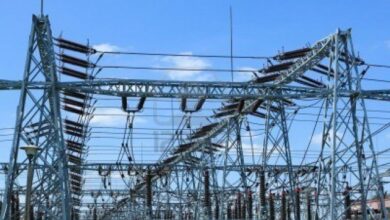Shrinking Spare Capacity Will Only Send Oil Prices Higher

Shrinking Spare Capacity Will Only Send Oil Prices Higher
When OPEC+ agreed to boost its monthly production growth target from 432,000 bpd to 648,000 bpd last week, many politicians in Europe and the White House across the Atlantic must have breathed a sigh of relief. But it wasn’t a lengthy relief. Following the OPEC+ announcement, oil prices should have dropped, but they didn’t. Prices rose. And this wasn’t just because the increase in target production growth could remain on paper only. It was because of spare capacity as well.
That the world’s spare oil production capacity is quite tight has been known for a while now. There have been warnings that underinvestment in new oil exploration, in large part a result of the investor shift to ESG opportunities and government policies discouraging more investment in oil, will lead to lower spare capacity. Yet these warnings remained largely unheeded.
Across OPEC+, there are only a few countries that can actually boost their oil production in a palpable way. And their combined spare capacity is not all that great. It is also falling.
Also Read: OPEC+ Unlikely To Boost Oil Production More Than Planned
According to conservative estimates, cited by Reuters, OPEC’s spare production capacity could slip below 1 million barrels daily by the end of this year. This is equal to less than 1 percent of global demand.
According to the EIA, the situation looks a lot better, with OPEC’s spare capacity at around 3 million bpd right now.
And according to Energy Aspects, the spare capacity of the extended OPEC+ group is about 1 percent of global daily demand, which is currently at around 102 million barrels.
This is not a whole lot of oil production that can be tapped within 30 days, per the definition of spare capacity by the U.S. Energy Information Administration. And if an outage happens somewhere in the world, it will become painfully clear exactly how little this is.
One energy analyst put it succinctly after OPEC+ announced the new production target.
“Saudi has to make a choice — do we let the price go higher while maintaining a super emergency, super crisis level of spare capacity?” Paul Sankey from Sankey Research told CNBC last week. “Or do we add oil into the market and go to effectively almost zero spare capacity, and then what happens if Libya goes down?”
Given that Libya “goes down” on average once a quarter and sometimes for an extended period of time and given that hurricane season is beginning in the Gulf of Mexico, the picture becomes even grimmer.
In previous years, hurricane season has taken offline the bulk of U.S. offshore oil production, which in turn accounts for 15 percent of total U.S. oil production. The bullish factors for oil seem to be just piling up.
“Saudi Arabia will be producing (about) 11 million bpd by the end of summer, and real spare capacity globally which can be brought online fairly quickly will be standing at just 1.5% of global demand,” Barclays said in note, in which the bank raised its forecast for Brent crude by $11 per barrel for this year and by $23 per barrel for next year, Reuters reported this week.
Also Read: South African Economy Shrinks 7%, Biggest Slump Since 1946
If this happens, Saudi will be near its spare capacity limit: it has never produced 11 million bpd for an extended period of time, Reuters noted in the report. It probably won’t do it now, either—see the choice outlined above by Sankey.
In fact, according to other forecasts, OPEC+ will go nowhere near its new target: JP Morgan sees actual output additions at 160,000 bpd in July and 170,000 bpd in August. Leaving geopolitics aside, although geopolitical considerations have a big part to play in OPEC+’s policies, there is simply not enough spare production capacity to make that production boost work.
By Irina Slav for Oilprice.com







